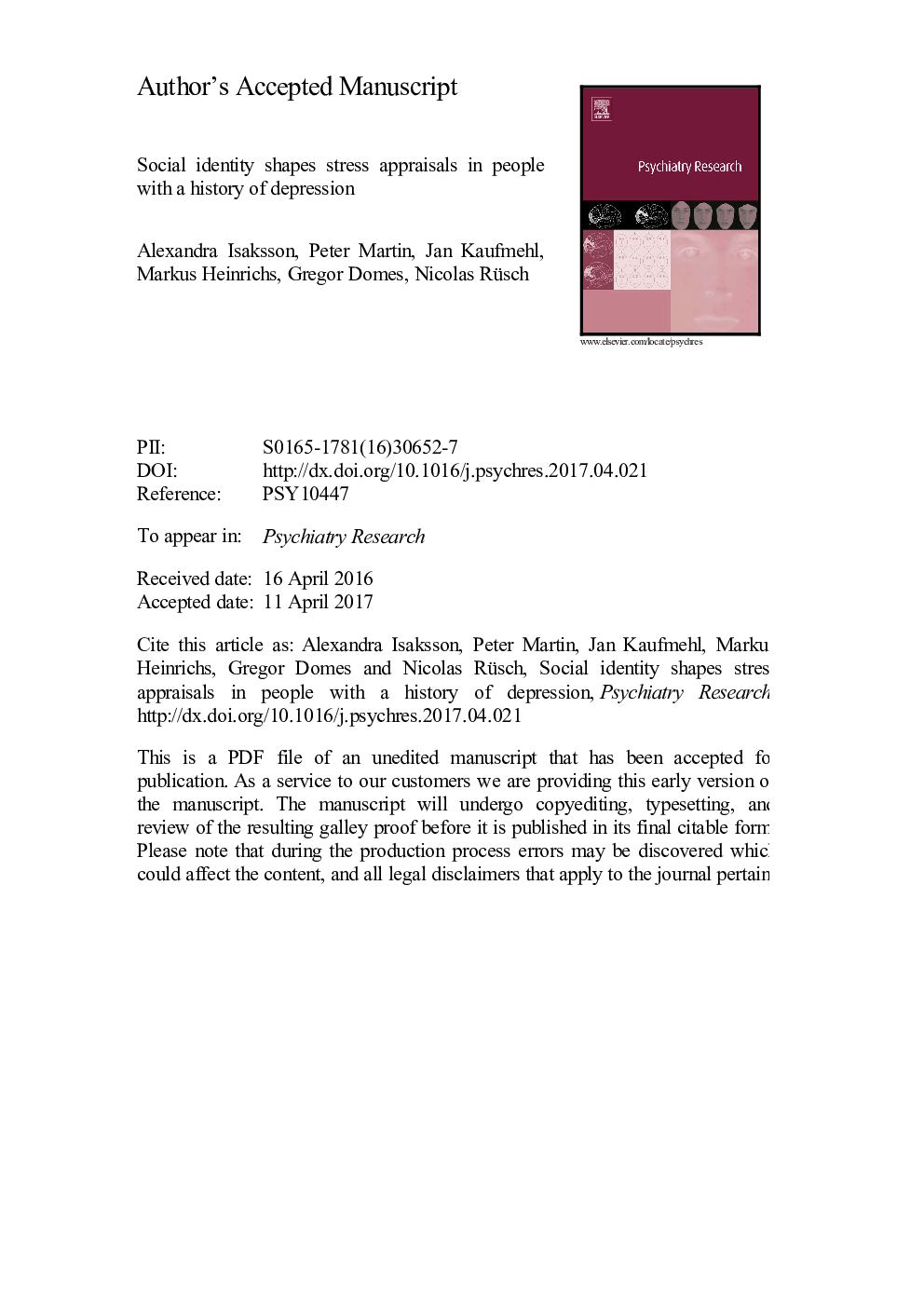| Article ID | Journal | Published Year | Pages | File Type |
|---|---|---|---|---|
| 4933112 | Psychiatry Research | 2017 | 26 Pages |
Abstract
Ingroup perception or the views people with depression have about their group, may influence their vulnerability to social identity threat and lead to enhanced stress reactions and impaired performance. It is unclear how ingroup perception can influence stress appraisals in performance situations among people with a history of depression who are currently in remission. We investigated the impact of ingroup perception on primary stress appraisal, i.e. how threatening a test situation is perceived, as well as on secondary stress appraisal, or perceived coping resources. Sixty people with a history of depression and currently in remission underwent computerized performance tests. Ingroup perception (group identification, group value and entitativity) and stress appraisals were assessed by self-report. In multiple linear regressions higher group identification predicted stronger perception of the situation as stressful if participants perceived people with depression as a coherent group (high entitativity) and held this group in low regard (low group value). In turn, stronger group identification was related to more perceived coping resources especially if participants did not regard people with depression as a coherent group. Our findings highlight the relevance of ingroup perception for stress and coping processes in people with a history of depression.
Related Topics
Life Sciences
Neuroscience
Biological Psychiatry
Authors
Alexandra Isaksson, Peter Martin, Jan Kaufmehl, Markus Heinrichs, Gregor Domes, Nicolas Rüsch,
